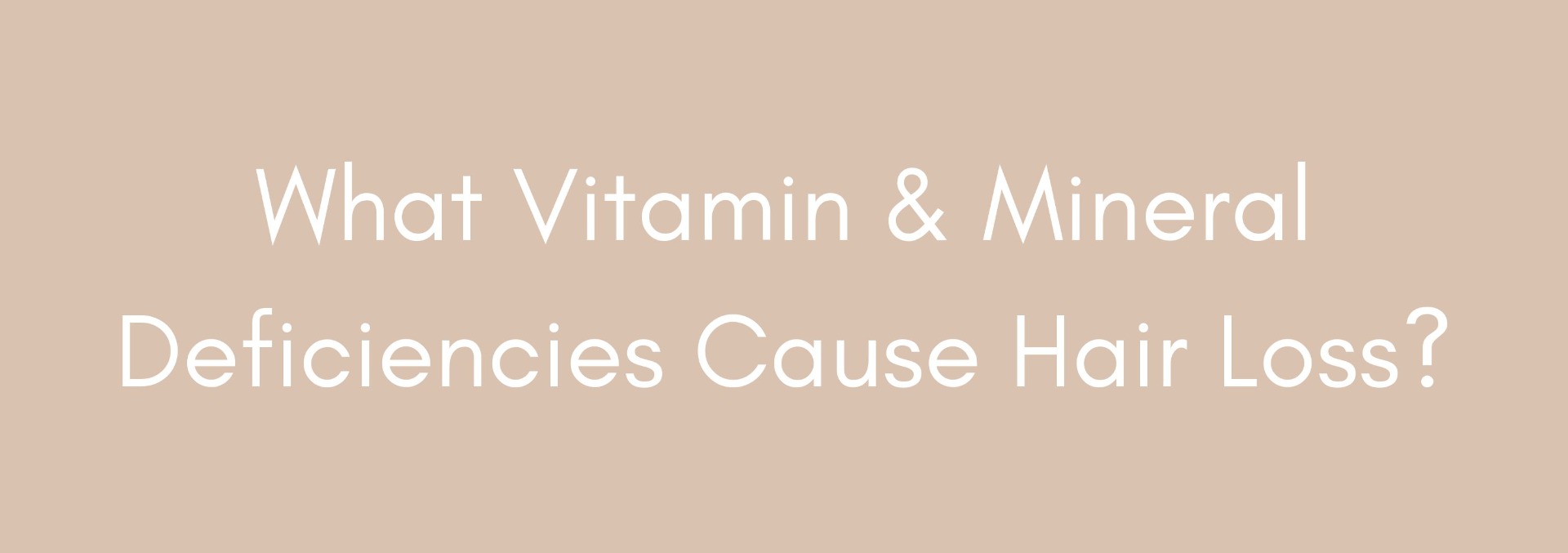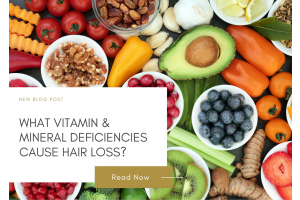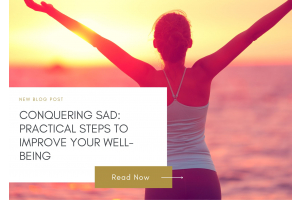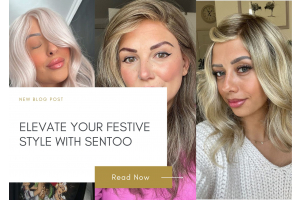
What Vitamin and Mineral Deficiencies Cause Hair Loss?
Hair loss can be an incredibly frustrating and emotional experience, leaving you searching for answers. While many factors can contribute to hair loss; like genetics, stress, and hormonal changes, nutritional deficiencies are often overlooked. Among the nutrients essential for strong, healthy hair, vitamins and minerals play a vital role. When your body doesn’t get enough of certain vitamins and minerals, your hair growth cycle can be disrupted, leading to thinning or even noticeable hair loss. Let’s explore which deficiencies might be affecting your hair and, more importantly, how you can address them to support healthier growth.
Key Vitamin Deficiencies That Can Cause Hair Loss
Vitamin D
Have you noticed your hair thinning or falling out more than usual? You might be low on vitamin D and let's face it, in the UK natural sources of vitamin D are pretty low during this time of year! This nutrient is essential for creating new hair follicles, the tiny pores where new and regenerating hairs grow. A lack of vitamin D has been linked to some forms of hair loss, and it can slow down overall hair growth.
How to Address It:
Sources: Try adding more fatty fish (like salmon and mackerel), egg yolks, and fortified foods to your diet. Spending 15-20 minutes in direct sunlight daily can also help... so perhaps you do need that winter getaway after all!
Tips: If you’re unable to get enough from food or sunlight, talk to a healthcare provider about supplements.
Biotin (Vitamin B7)
Have you been dealing with brittle hair or even noticeable thinning? Biotin, part of the B-vitamin family, is a key player in producing keratin, the protein that gives your hair strength and structure. A biotin deficiency can lead to weak, thinning hair
How to Address It:
Sources: Incorporate eggs, nuts (like almonds and walnuts), seeds, sweet potatoes, and spinach into your meals.
Tips: While biotin deficiency is rare, if your hair and nails feel unusually brittle, a supplement might make a difference, but it is important to note that if you are not deficient in Biotin then a supplement will not help with your hair loss concern. This vitamin is mentioned more and more from clients visiting our clinic due to products heralding it as a wonder supplement for hair loss, but if there is no evidence of a deficiency then additional Biotin is not necessary.
Vitamin B12
Feeling tired and noticing hair loss? Low levels of vitamin B12 might be to blame. This vitamin helps your body produce red blood cells, which carry oxygen and nutrients to your scalp and hair follicles. Without enough, your hair’s growth cycle can be affected.
How to Address It:
Sources: Foods like meat, poultry, fish, dairy products, and fortified plant-based alternatives are great options.
Tips: If you follow a vegetarian or vegan diet, consider a B12 supplement to keep your levels in check.
Iron
Have you been told or suspect you’re anaemic? Iron deficiency, a common cause of hair loss, means your hair follicles aren’t getting enough oxygen, which is essential for healthy growth and therefore a lack of Iron often leads to shedding and thinning. It’s a common deficiency amongst our clients, easily diagnosed with a blood test so if you are concerned get booked in for a test.
How to Address It:
Sources: Add iron-rich foods like red meat, beans, lentils, tofu, dark leafy greens, and fortified cereals to your diet.
Tips: Pair these foods with vitamin C-rich options (like citrus fruits), and if supplementing always increase vitamin c, to improve absorption.
Vitamin E
If your hair feels weak or breaks easily, low levels of vitamin E might be a factor. This antioxidant supports a healthy scalp by reducing oxidative stress.
How to Address It:
Sources: Nuts, seeds, spinach, and avocados are great additions to your meals.
Tips: Using vitamin E-rich oils, like sunflower or almond oil, in cooking can give your hair an extra boost.
Vitamin A
A dry scalp or lacklustre hair might signal a vitamin A deficiency. This nutrient helps produce sebum, the natural oil that keeps your scalp moisturised and your hair healthy. Be cautious, though, as too much vitamin A can also cause hair loss.
How to Address It:
Sources: Load up on sweet potatoes, carrots, pumpkin, spinach, and kale.
Tips: Balance is key; stick to natural sources and avoid overdoing supplements.
Vitamin C
If your hair feels fragile or you’re noticing breakage, vitamin C might be what you’re missing. It’s crucial for collagen production, which strengthens your hair’s structure, and as mentioned previously, it also helps your body absorb iron—a win-win for hair health.
How to Address It:
Sources: Enjoy citrus fruits (like oranges and lemons), strawberries, bell peppers, and broccoli.
Tips: Adding a vitamin C-rich food to your meals can enhance iron absorption and improve overall hair health.
Zinc
Dealing with a flaky scalp or increased shedding? Zinc is essential for repairing tissues and maintaining the health of your scalp. A deficiency can lead to hair thinning and a dry, itchy scalp.
How to Address It:
Sources: Include shellfish, meat, beans, nuts, and whole grains in your diet.
Tips: If you’re considering a supplement, talk to a healthcare provider, as too much zinc can interfere with other minerals like copper, another hair-friendly mineral.
Taking Control of Your Hair Loss
If you’ve been struggling with hair loss, it’s natural to feel overwhelmed. But you’re not alone, and understanding the role of nutrition is a powerful step toward healthier hair growth. While addressing vitamin deficiencies through a balanced diet can make a difference, persistent or severe hair loss might indicate other underlying issues. Don’t hesitate to get in touch for professional advice to help uncover the potential causes and recommended tailored treatments, from blood tests to targeted supplements and clinical treatments.
Remember, healthy hair starts from within. By nourishing your body with the right vitamins and minerals, you’re setting yourself up for stronger, more resilient hair, and a boost in confidence to match.
If you would like to speak to a specialist about any of the topics raised in this blog, please get in touch with us here.





